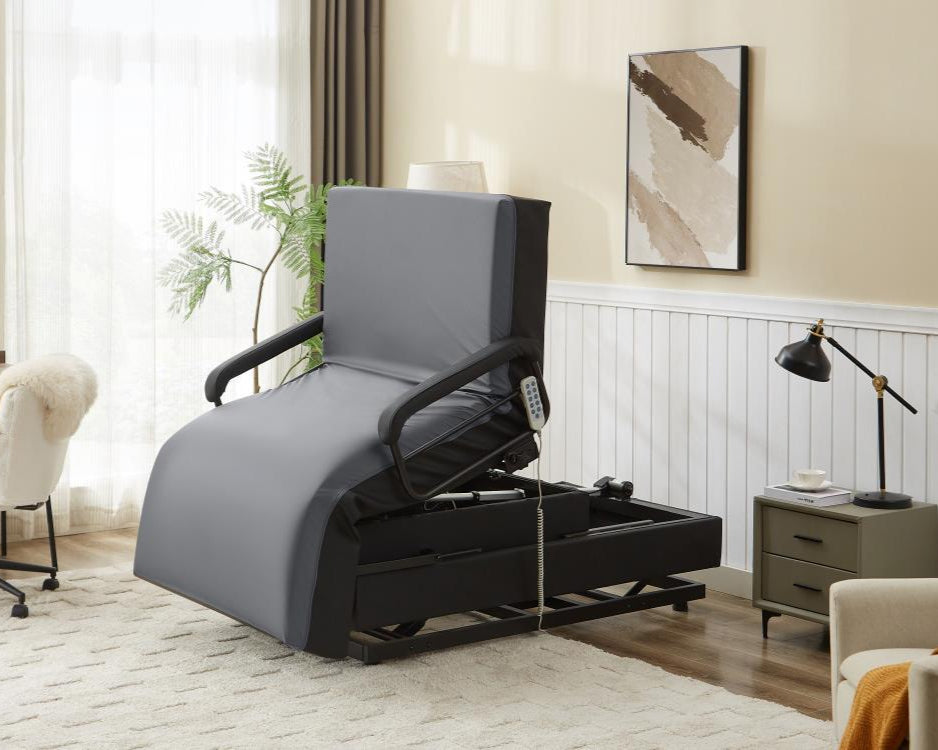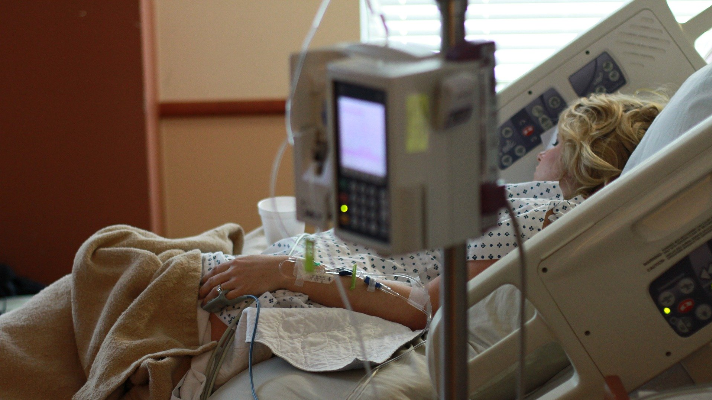The Main Principles Of Hospital Beds For Home Use
The Main Principles Of Hospital Beds For Home Use
Blog Article
Not known Details About Hospital Beds For Home Use
Table of ContentsFacts About Hospital Beds For Home Use RevealedHospital Beds For Home Use Can Be Fun For AnyoneThe smart Trick of Hospital Beds For Home Use That Nobody is DiscussingThe Greatest Guide To Hospital Beds For Home Use5 Easy Facts About Hospital Beds For Home Use ShownHospital Beds For Home Use Fundamentals ExplainedThe Ultimate Guide To Hospital Beds For Home Use
There are three primary kinds of healthcare facility beds: manual, semi-electric, and fully-electric. Even more types of clinical beds exist and they are noted below. These beds use hand cranks to change the bed's elevation and increase and lower the head and the foot. Hand cranks are commonly found at the foot of the bed and call for a person that is physically capable of operating.
Semi-electric beds have an electrical motor to increase and lower the head and foot sections of the bed (hospital beds for home use). Full-electric beds have an electrical motor that can increase the head and foot sections of the bed as well as the entire elevation and positioning of the bed.
Little Known Facts About Hospital Beds For Home Use.
There are several kinds of health center beds, each developed to fulfill specific client requirements. Right here are some usual types: This is the most usual type of hospital bed, developed for basic clinical use.
Lower to the ground than a typical bed. This kind of bed is made for bigger patients, with a bigger framework and higher weight capability than a common bed.
This kind of bed is developed for critically ill patients who need open monitoring and specialized medical equipment such as ventilators and infusion pumps. This kind of bed is made for usage throughout labor and shipment, with flexible positions and attributes to support the mom and infant during the birth process.
The smart Trick of Hospital Beds For Home Use That Nobody is Discussing
Several feature and the accessories do broadening grip to different components of the vertebra and the extremities without relocating the body. These are simply a couple of instances of the sorts of medical facility beds offered. The particular kind of bed made use of will depend on the patient's problem, medical requirements, and various other variables.
Below is the point you require to understand. A one-function health center bed is a clinical bed that allows a person to relocate only the head or foot area up or down. A 2 function healthcare facility bed usually refers to a kind of clinical bed that has two adjustable features to help individuals in health centers or care centers.

Not known Facts About Hospital Beds For Home Use
A 7-function ICU bed is a kind of medical bed that provides several flexible functions to support critically ill individuals in a critical care unit (ICU) (hospital beds for home use). The seven functions normally include: Back-rest modification: The backrest can be readjusted to different angles to assist the individual sit up or exist down pleasantly
Elevation modification: The bed can be increased or decreased to make it less complicated for patients to enter and out of bed, and for caregivers to give care. Trendelenburg position: The whole bed can be slanted to promote blood circulation and flow in the body. Reverse Trendelenburg position: The bed can also be slanted in the opposite direction to promote blood circulation and circulation in the upper body.
While even more economical than electric versions, these beds need exertion for modifications. The main benefits of manual beds are their cost and dependability, as they don't rely upon electrical energy. The need for hands-on effort can be a constraint in situations where quick changes are needed or where caregivers encounter physical difficulties.
Hospital Beds For Home Use Can Be Fun For Everyone
They are appropriate for clients that call for marginal rearranging for comfort or clinical original site demands. Semi-electric hospital beds supply an equilibrium of handbook and electrical controls. The head and foot sections are usually readjusted with electrical controls, while the elevation is readjusted manually. These beds provide a suitable middle ground in between manual and totally electrical alternatives, offering simplicity of use without the full expense of electrical versions.
Semi-electric beds are well-suited for individuals who need moderate modifications to the head and foot sections however can handle without regular elevation adjustments. her explanation This makes them a cost-efficient remedy for those looking for convenience and benefit without the need for constant repositioning. Totally electric healthcare facility beds feature electric controls for smooth changes to the height, head, and foot areas.
Specialty healthcare facility beds, such as ICU beds, long-term care beds, and bariatric beds, are thoroughly designed to address particular clinical requirements. These beds use tailored look after varied individual teams, boosting both outcomes and comfort. In the following sections, we will certainly check out the main kinds of specialized hospital beds, detailing their details benefits and applications.
With years of experience in making electrical linear actuators - hospital beds for home use and close partnership with the medical care market, TiMOTION is well-positioned to provide trustworthy medical care services. Our up and down integrated company takes care of every action of the manufacturing process, from design to actuator setting up, ensuring we deliver extraordinary worth and personalized remedies tailored to your certain demands
The Definitive Guide to Hospital Beds For Home Use

For more information about integrating these modern technologies into your products, contact us today. Further reading:.
Information is sourced from the Medicare Cost Report.

3 Simple Techniques For Hospital Beds For Home Use
A hospital bed is a bed made especially for medical purposes. It is not just a location for clients to rest, yet likewise a platform for clinical procedures. Unlike regular home beds, hospital beds generally have flexible features, which can help with medical staff to make numerous changes according to the requirements of patients, such as transforming the height, disposition, and support angle of the back and legs of the bed.
Report this page